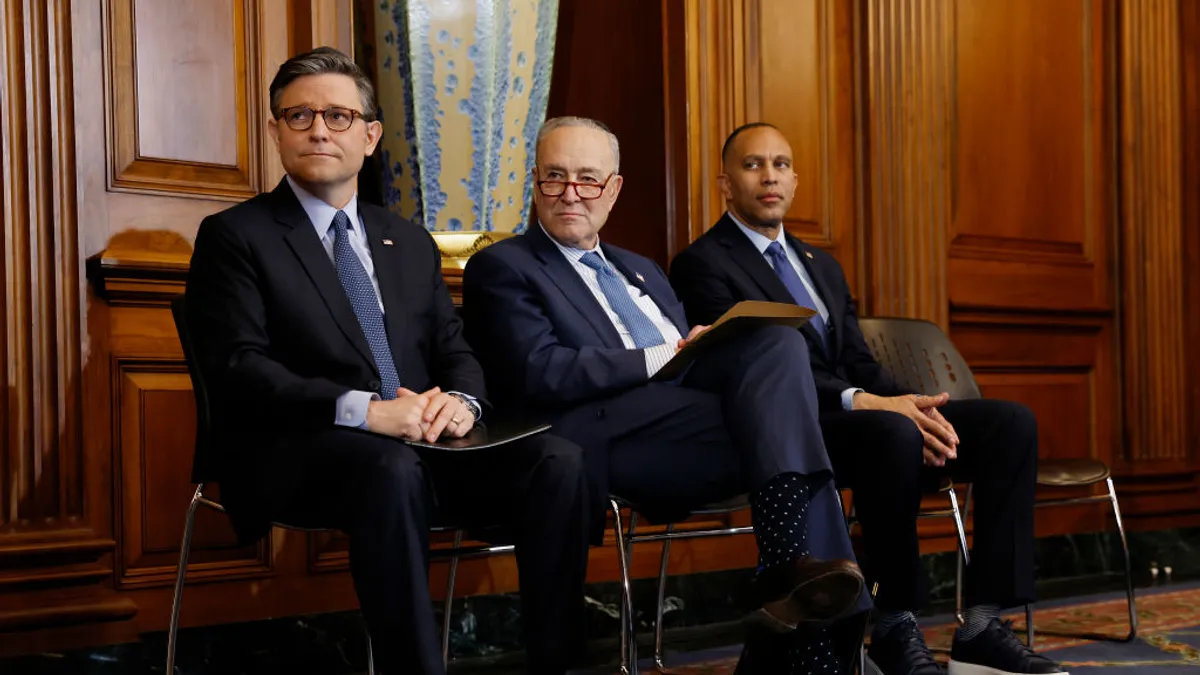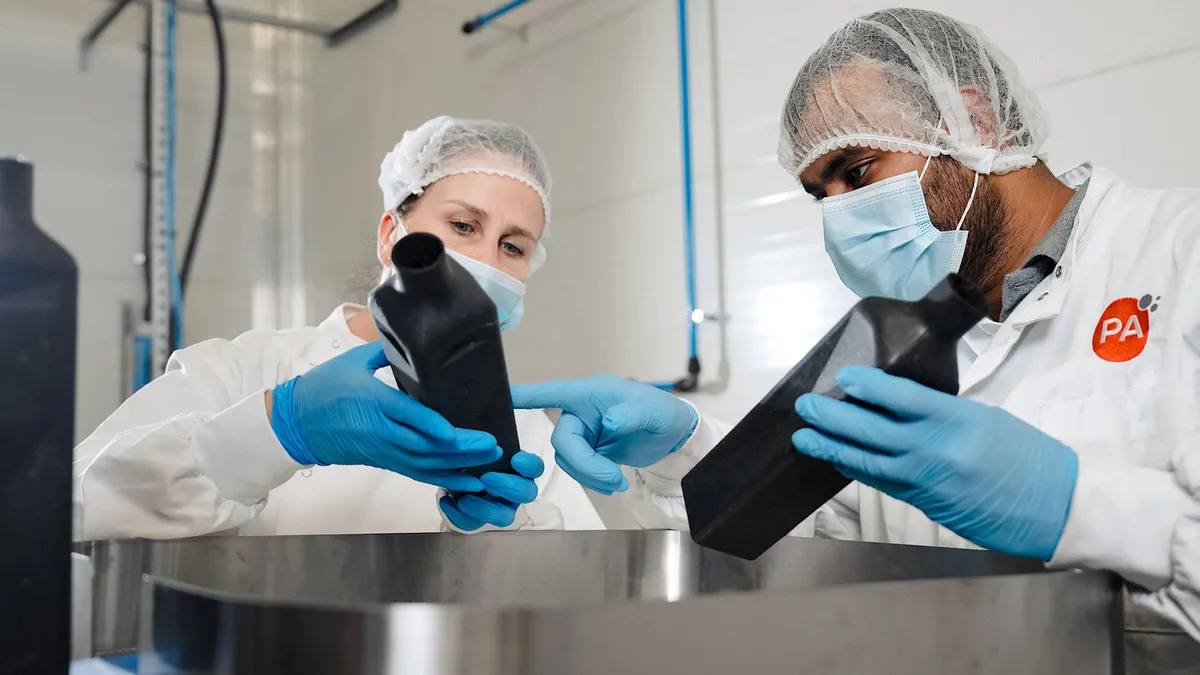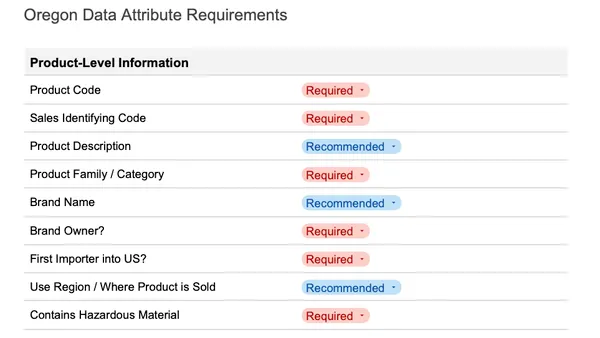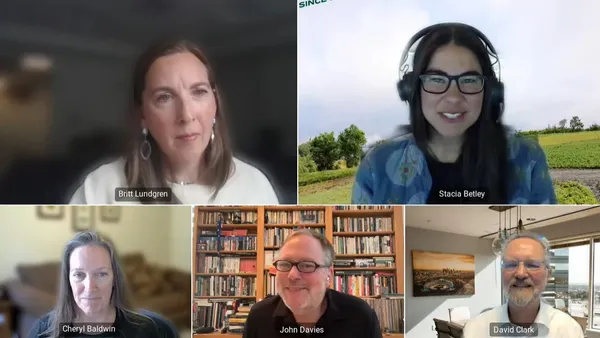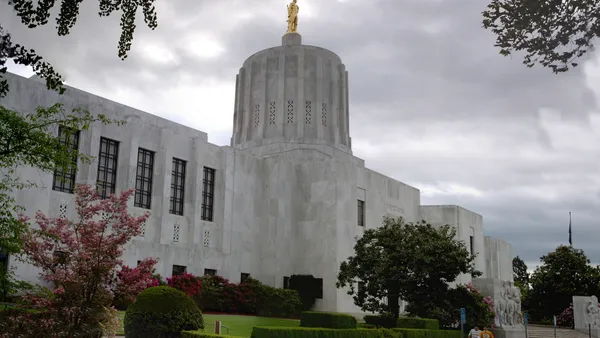UPDATE: Dec. 20, 2024: Two long-awaited pieces of legislation, the Recycling and Composting Accountability Act and Recycling Infrastructure and Accessibility Act, have been cut from the latest draft of a continuing resolution in the House of Representatives and are not considered likely to be part of a final deal to fund the federal government.
Dive Brief:
- Language from two industry-backed bills, the Recycling and Composting Accountability Act and Recycling Infrastructure and Accessibility Act, was included in a broader federal budget bill that is set for a vote in Congress this week.
- The proposed bill dedicates $4 million per year, through fiscal year 2029, for the U.S. EPA to conduct the RCAA’s various data gathering and reporting requirements. It dedicates $30 million per year, over the same time period, to fund pilot grant programs under the RIAA.
- The bill also includes $95 million for state and tribal assistance grants for hazardous waste and solid waste cleanup needs as a result of Hurricanes Helene and Milton.
Dive Insight:
The inclusion of these bills in must-pass budget legislation is a notable development for waste and recycling stakeholders after years of stalled attempts.
The federal government is currently set to run out of funding on Dec. 20. Passage of this continuing resolution, which will fund it to March 14, is expected in the coming days.
The two bills were first introduced in 2022 and have passed the Senate twice, but failed to gain traction in the House of Representatives.
The RCAA is sponsored by retiring Sen. Tom Carper, D-Del., who is currently chair of the Senate Environment and Public Works Committee. The RIAA is sponsored by Sen. Shelley Moore Capito, R-W.Va., incoming chair of EPW. Sen. John Boozman, R-Ark., is also a cosponsor and supporter as co-chair of the Senate Recycling Caucus. All three senators have previously received campaign contributions from industry trade groups that are supportive of these bills.
“We know that recycling is a win-win. It not only benefits our environment, but it also creates economic opportunity and jobs,” Carper said in a statement. “I’m thrilled that these bills are one step closer to becoming law, and I thank my colleagues on both sides of the aisle and both sides of the Capitol for their work to get us to this point.”
The RCAA’s range of provisions includes directing the EPA to conduct an inventory of MRFs as well as recycling and composting programs in the U.S. This includes language about studying contamination rates, accepted materials by substrate and packaging type, end markets and multiple other factors.
The RIAA would create a pilot grant program to fund recycling efforts and related infrastructure in rural areas, including a focus on hub-and-spoke models. Grants could range from $500,000 to $15 million and be used for infrastructure such as MRFs and transfer stations.
“These bipartisan bills respond to the most pressing challenges facing the recycling industry, making it easier for more people to recycle, especially in rural states like West Virginia,” said Capito in a statement.
This development follows a recent push by industry organizations asking legislators to pass these bills by the end of the year. Supportive groups include the Aluminum Association, American Beverage, American Chemistry Council, Ameripen, Ball, Biodegradable Products Institute, Can Manufacturers Institute, Consumer Brands Association, Dow, Flexible Packaging Association, Foodservice Packaging Institute, General Mills, Glass Packaging Institute, Keurig Dr Pepper, Kraft Heinz, Mondelez, PepsiCo, Plastics Industry Association and Unilever, among others.
If passed, these bills would be the latest in a series of federal funding opportunities for recycling efforts. The EPA is still in the process of accepting applications and awarding funding for recycling infrastructure and education grants with $350 million in funding from the 2021 Infrastructure Investment & Jobs Act.



